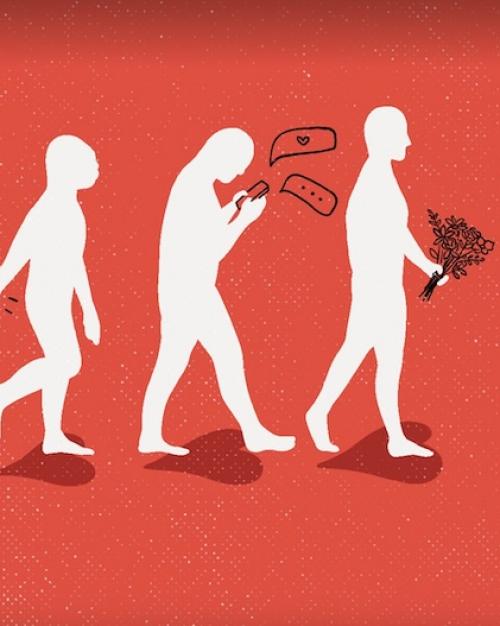Cornell’s Psychology Department Newsletter • summer 2020
Dear Reader,
In light of the recent protests ignited by the death of George Floyd the Psychology Diversity, Equity, and Inclusion Committee, along with the current and incoming department chairs, sent the following statement to our community last Friday.
Given the importance of this issue, this special edition of Gray Matter is dedicated to addressing the racially charged problems in our society and the steps the committee has pledged to right them, both here at Cornell and beyond.
People of power, privilege, and moral conscience must stand up and say, “No more!” to racially discriminatory police and justice systems, immoral economic disparities between Black and White Americans, and government actions that undermine our unified democracy.
Statement of Acknowledgement & Solidarity
We write at this moment of great pain to acknowledge the horrific recent murders of members of our Black communities at the hands of the police and civilians — George Floyd, Breonna Taylor, Ahmaud Arbery, Tony McDade — and so many others who have been murdered or victimized before and since. We want to acknowledge that these events are likely to have an acutely traumatic effect on members of the Black community, who have long born the emotional and psychological trauma of pervasive structural racism in our society. Examples of White victimhood casually wielded as a tool of power over Black people — as in the case of Christian Cooper in Central Park — further serve as a reminder of the perils of being Black in public and the long history of violence, death, and racism Black people in America have faced for hundreds of years.
We acknowledge the consequences of COVID-19, especially on the Black, Latinx, Asian American and Pacific Islander, and Indigenous communities who have been disproportionately affected by the virus, as well as the accompanying heightened racism and xenophobia, including recent calls to ban Chinese graduate students from entering the United States.
We acknowledge that such crises often have disproportionate effects on the economic, social, physical, and psychological well-being of women, especially women of color, and members of trans and queer communities, and that these struggles are intertwined.
We state unequivocally that we stand in solidarity with our colleagues of color during this appalling and exhausting time, when the devaluation of their lives is on stark display. Members of our department teach and research the psychological causes and consequences of racism, sexism, homophobia, and xenophobia: these academic pursuits should not be separable from our lives as citizens.
We should be doubly committed to supporting our community day in and day out to make sure that everyone feels free to learn and explore at Cornell without fear.
We stand in solidarity with the protests aimed at combating the bigotry, hatred, and systemic patterns of brutality that cost George Floyd — and countless others before him — their lives. We believe silence is complicity and that our community members of color cannot know whether we stand together with them if we remain silent.
We recognize that words without action are hollow and would therefore like to highlight our plans to address issues of inclusivity and equity in our own community. President Pollack’s recent challenge to us to meet the issue of systemic racism head-on was a call for action and it renewed our commitment to fostering an environment that promotes the full and safe participation of all members of our community.
We commit to doing the work necessary to convert our good intentions into effective action — to create systematic outreach systems to diversify our candidate pools at all levels, and to create systems and networks that support our historically underrepresented community after they have been recruited to join us at Cornell.
We commit to questioning how systems of power have shaped our own science; to expanding our subject pools; and to reading and promoting the work of historically underrepresented scholars to create a more representative science.
And we commit to doing the challenging personal work of confronting our own biases and the way they proliferate unchecked in a system of racial oppression.
We will meet with Sara Xayarath Hernández (Graduate School Associate Dean for Inclusion & Student Engagement) to develop strategies to be present for our students during and beyond this painful time. We plan on holding a forum to create a safe space to discuss these issues and will solicit feedback and ideas to expand the number of voices in this conversation.
We recognize it should not be the burden of people of color and others from historically underrepresented backgrounds and marginalized communities to teach us best practices, but we are listening and want to know how to best support you. All members of the psychology community are strongly encouraged to reach out to any of us, or use this anonymous survey, to help us improve diversity, equity, and inclusion (DEI) and tell us how we might best support you or your colleagues. This link will also remain permanently active as a place to anonymously report any incidents of bias you might experience and to make suggestions about improving DEI efforts in our department. (We also encourage you to use the University’s Bias Reporting Form for this purpose.)
As Dean Knuth said in a recent dispatch to the graduate school, we hope we can all endeavor to “treat each other with kindness and empathy, eschew violence, and work actively in whatever ways you are able to disassemble existing, systemic, institutional barriers to equity, inclusion, justice, and a quality life for all. Be open to learning each other's stories about their lived experiences, and to really hear the underlying pain, grief, rage, and injustices that these stories may reveal ... and then to take action in peaceful ways toward meaningful change.”
Angela Davis reminds us that “it is not enough to be nonracist, we must be antiracist” and that “sometimes we have to do the work even though we don't yet see a glimmer on the horizon that it's actually going to be possible.” Despite the anguished turbulence of this era, we are hopeful that the movement we see unfolding around us — notable by the size, diversity, power, and youth of the crowds gathering all across the world — represents such a glimmer. We commit to doing what we can to move toward the antiracist society we want to see.
With respect and in solidarity,
Amy Krosch, Chair, Cornell Psychology Diversity, Equity, & Inclusion Committee
Carol Krumhansl, Member, DEI Committee
Alex Ophir, Member, DEI Committee
Tom Gilovich, Current Chair, Psychology Dept.
David Field, Incoming Chair, Psychology Dept.
Action Items & Ideas for Improving DEI in Psychology
Values/Action
- Faculty to meet and discuss shared values of the department, e.g., whether our admissions strategies reflect these values and how we intend to support inclusion of students from historically underrepresented backgrounds and marginalized communities after recruitment, etc.
Graduate Student Recruitment
- Proposed changes to GRE: Make the GRE optional and if students choose to submit GRE scores, make sure the admissions committee is blind to those in early rounds of review.
- Proposed addition of a Personal Statement: A document to allow students to explain perceived challenges due to COVID-19, other extenuating circumstances, etc.
- Encourage faculty who hold DEI values to include a statement of inclusivity and guides to applying (and resources) for diversity fellowships in their recruitment materials (e.g., calls for graduate students on websites, listservs).
- Encourage faculty who hold DEI values to consider limiting pre-application interaction with prospective students to not unfairly favor ones who contact us.
Graduate Student Support
- Create departmental guides for graduate students, so no one has to rely on receiving critical information from advisors or peers.
- Hold “mentoring-across-difference” workshops meant to highlight the ways cross-group membership can affect mentoring and career development, with an emphasis on:
- the importance of mitigating isolation and helping students develop the professional skills and political savvy necessary to successfully navigate an academic career
- vigilance for signs of bias and speaking up on issues that negatively affect students
- encouraging and brokering additional mentoring relationships, so students have a range of mentors with multiple perspectives, different skills, and expertise
- Create a student forum for open conversations about what students perceive as the challenges URM face in our field and try to help navigate these challenges.
- Launch faculty training in amplification of URM and female voices.
Undergraduate Support
- Create a prepaid Diversity Preview Weekend for a visit to our department and professional development workshops and panels (see example).
- Create paid summer internships for undergrad URM with a professional development component.
- Expand and support the undergrad URM mentorship program created by the graduate students.
Teaching
- Rewrite syllabi to achieve gender parity and better representation of POC.
- Add to syllabi information that may be critical to students but can often be difficult to find (e.g., counseling services, academic resources, food insecurity resources, and resources for victims of sexual violence, discrimination, and identity-based harm) and expand statements of inclusivity. (See the CTI Syllabus Template for example statements on inclusivity and accessibility and the CTI resource page on Building Inclusive Classrooms.)
- Hold a book club in labs/areas/the department. Suggestions: How to Be an Antiracist, So You Want to Talk About Race, White Fragility.
URM Faculty Support
- Develop ways to consider bias in teaching evaluations and tenure letter evaluations.
- Develop documentation procedures for unseen service commitments, as women and URM are often called on to do more emotional labor, write more recommendation letters, are selected for advising, etc.
- Create cross-discipline mentorship programs for URM faculty.
Hiring Practices
- Proactively generate lists of prospective hires at all levels who would contribute to the diversity of the department and make colleagues aware of the provost’s funds for diverse candidates.
- Develop procedures for searches based on best practices and create official mechanism for diversity committee oversight, i.e., the CALS Search Committee Resource page.
Ever-Evolving List of Resources
General Information
- Movement for Black Lives: actions, petitions, donation opportunities
- Black Lives Matter: Ways You Can Help
- Tompkins County: Showing Up for Racial Justice (SURJ)
- Community Healing: BEAM (Black Emotional and Mental Health Collective)
- Compilation of Anti-Racism Resources: Sarah Sophie Flicker & Alyssa Klein
- Obama Foundation: Ways to Meet Anguish with Action
- Reclaim the Block: MPLS organization calling on police defunding
- Resources from the MPD150 – a “participatory, horizontally-organized effort by local organizers, researchers, artists, and activists” who monitor and evaluate the police in Minneapolis. See their FAQ.
For White & Non-Black POC Supporting Solidarity Efforts
- Questions I ask myself as a white person when posting about racism to social media, Instagram post
- 10 Steps to Non-Optical Allyship
- How You Can Be an Ally to the Black Lives Matter Movement, Great Big Story
Information for Supporting Students & Colleagues
- A Thread for PIs on Supporting Black Students, Angeline Dukes
- Your Black Colleagues May Look Like They’re Okay — Chances Are They’re Not, Refinery 29
Articles
- Michael Kraus on How White Managers Can Respond to Anti-Black Violence
- Prof. Angelica Leigh on feeling like a participant in her own research
- How Higher Ed Can Fight Racism: ‘Speak Up When It’s Hard,’ The Chronicle of Higher Education
- Elijah Anderson’s “The White Space.” White people avoid “Black spaces” while Black people are required to navigate “White spaces.”
- Race Matters, David J. Asai. cell.com
- Julie Posselt’s, “If this week has motivated you to deepen your understanding of racism and resistance, and you are concerned about graduate education, here are six recent studies I recommend.” Twitter.
- “Am I going crazy?!” A Critical Race Analysis of Doctoral Education
- Responding to Racism and Racial Trauma in Doctoral Study
- The Diversity-Innovation Paradox in Science
- Grad Students’ Agency & Resistance After Oppressive Experiences
- Bait and Switch: Representation, Climate, & Tensions of Diversity Work in Grad Ed
- My Sister’s Keeper: Mentoring Experiences of Black Women
Books
- How to Be an Antiracist, Ibram X. Kendi
- So You Want to Talk About Race, Ijeoma Oluo
- White Fragility, Robin DiAngelo
- Just Mercy, Bryan Stevenson
- The New Jim Crow, Michelle Alexander
- Between the World and Me, Ta-Nehisi Coates
Bail Funds
- List of verified bail funds in the US and National Bail Out. The cash bail system implicitly discriminates against BIPOC and lower income individuals, as they are disproportionately targeted for arrest.
Organizations & Funds to Support
- George Floyd Memorial Fund
- In Memory of Tony McDade
- Stand with Bre
- I Run with Maud
- Black Visions Collective
- Black Lives Matter
- Campaign Zero
- Race Forward
- Thurgood Marshall College Fund
- Black Girls Code
Protesting from Home





